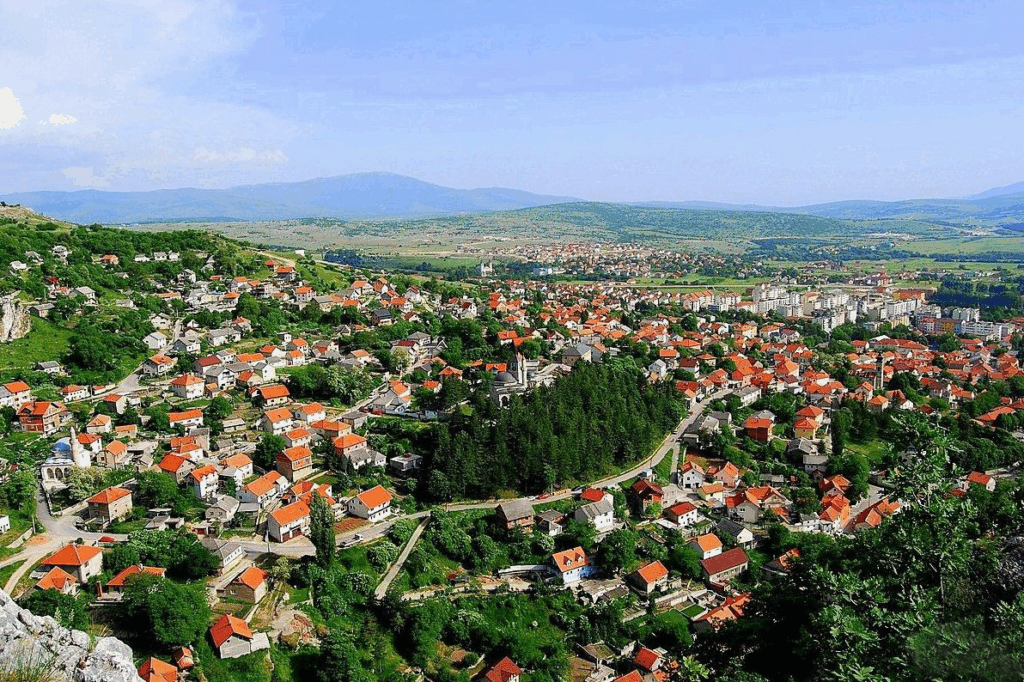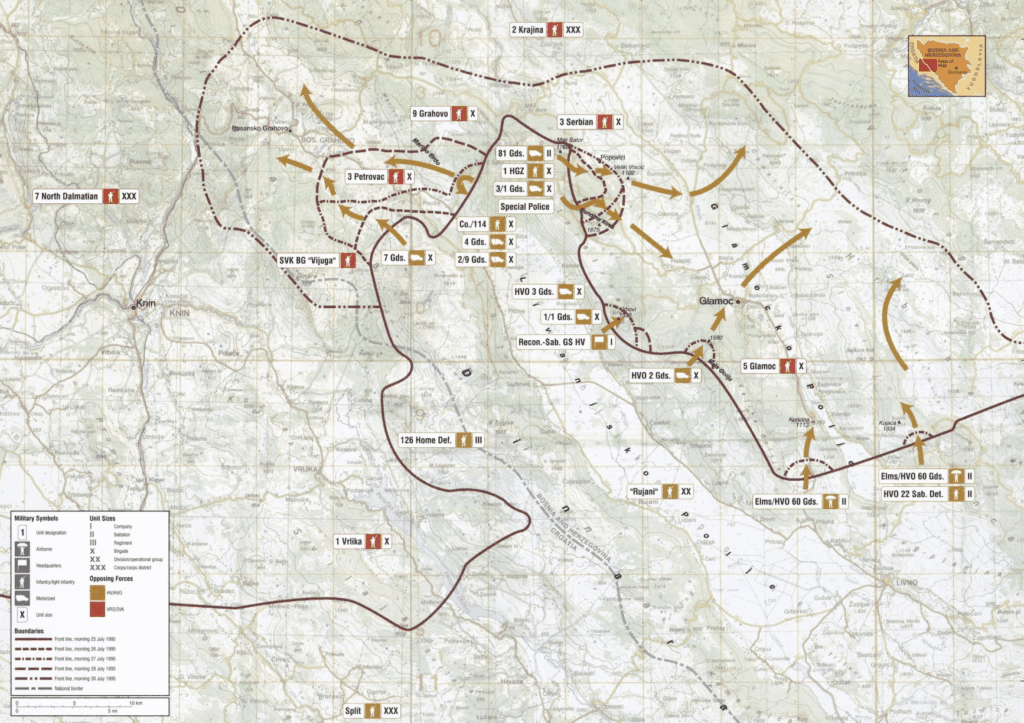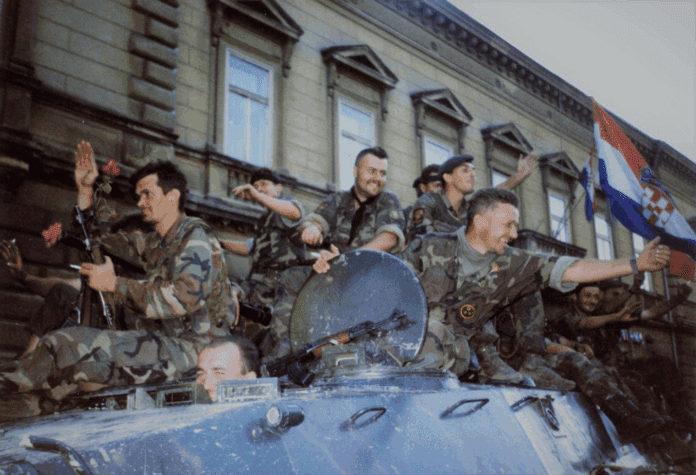A major commemoration was held in Livno marking 30 years since Operation Summer ’95, a pivotal military campaign by Croatian forces that paved the way for Operation Storm and Croatia’s ultimate victory in the Homeland War.
Attended by top officials from Croatia and Bosnia and Herzegovina, the event honoured fallen soldiers and highlighted the ongoing importance of Croatian unity and political recognition in BiH.

A Solemn Gathering in Livno
A solemn ceremony was held on Saturday in Livno. Numerous commanders and members of Croatian military units from both Croatia and Bosnia and Herzegovina gathered to commemorate the 30th anniversary of the operations against Serbian forces – operations that laid the groundwork for Operation Storm, one of the greatest victories in Croatian history.
Recognition of Veterans’ Contribution
Deputy Prime Minister of Croatia and Minister for Veterans, Tomo Medved, who was present as the envoy of the Croatian Prime Minister, awarded veteran appreciation certificates to the participants of the operation. Among the many attendees were Dragan Čović, President of the Croatian National Assembly, and Borjana Krišto, Chairwoman of the Council of Ministers of Bosnia and Herzegovina.
Mass and Tribute to the Fallen
The ceremony began with a mass at the local Church of All Saints, followed by a procession from the church to the monument for the freedom of the Croatian people. At the monument, delegations laid wreaths and paid their respects to fallen Croatian defenders from both countries. This moving gesture was warmly received by many local residents who turned out in large numbers.
Operation Summer ’95 and Its Historic Significance
At the central ceremony, held in the packed auditorium of the People’s University in Livno, Minister Medved stated that Operation Summer ’95 marked a turning point in the war and served as a prelude to the final victory. He particularly emphasised the roles of Croatia’s first President Dr Franjo Tuđman and wartime Defence Minister Gojko Šušak.
“In Operation Summer ’95, Croatian forces wrote historic chapters and laid the foundation for the final victory and the freedom of the Croatian people. Summer ’95 was a key operation jointly carried out by the Croatian Army and the Croatian Defence Council under the command of General Ante Gotovina,” said Medved.
A Message to the Youth
He expressed his gratitude to all participants in the operation, particularly the wartime commanders, and highlighted the strength and determination of the Croatian Army (HV) and the Croatian Defence Council (HVO). He urged the youth to follow the example of their brave forebears, always remembering that freedom was not given, but paid for with the blood of courageous Croatian sons.
A Pivotal Operation in the Path to Victory
To recall, in Operation Summer ’95, Croatian forces liberated Glamoč, Bosansko Grahovo, and the wider area of Western Bosnia between 25 and 30 July 1995, covering a total area of approximately 1,600 km². Nearly 25,000 members of the Croatian Army and the Croatian Defence Council participated in the operation. During the operation, 23 Croatian defenders were killed and 180 were wounded.
The Croatian Army operated legally in Bosnia and Herzegovina based on the Split Declaration signed between Croatia and Bosnia and Herzegovina. This operation followed Skok 1 and Skok 2, which liberated the peaks of Dinara Mountain. Croatian forces even deployed tanks to this mountainous region, bringing Knin – the centre of the Serbian para-state in Croatia – into a state of semi-encirclement.

Strategic Prelude to Operation Storm
Thus, strategic conditions were created for Operation Storm, which would begin just four days later. This operation decisively eliminated the para-state and stood as an example of a swift and effective military campaign that few had anticipated.
Political Significance Beyond Commemoration
The commemoration held in Livno, the headquarters of Operation Summer ’95, was not only a tribute to an important recent historical event but also held significant political weight for the current status of Croats in Bosnia and Herzegovina. Notably, Chairwoman Krišto’s participation – as the head of the executive authority of that country – was particularly meaningful.
It signalled a new balance of power aimed at ensuring the genuine equality of Croats in Bosnia and Herzegovina as one of its three constituent peoples, within the political framework of Bosnia and Herzegovina’s progress towards European integration – a process strongly supported by Croatia. This equality includes all the rights that come with their constitutional status, whether some approve of it or not.

